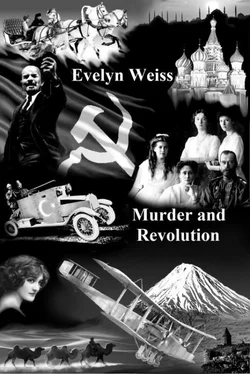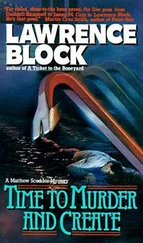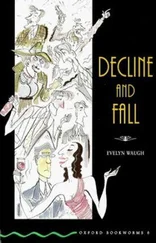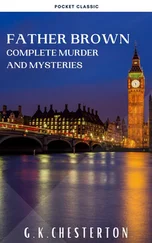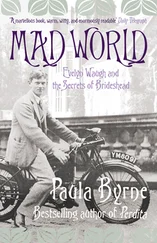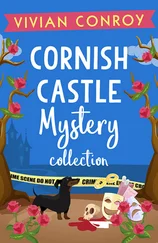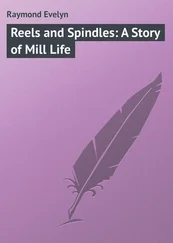Buttermere shrugs. “Look out of the window – not at the hospital, but over there, along the main road.”
“There’s nothing – except a line of telegraph poles.”
“Something happened here in Ivangorod last year, Miss Frocester.” I feel an odd chill, like a premonition that Lord Buttermere’s story will end grimly.
“It began when our agents in Germany sent intelligence to me in London. Their message told me about a secret naval mission that the Kaiserlicht Marine were planning, using a U-boat. The German submarine was to travel to the Baltic coast near Ivangorod. At a lonely spot on the shore, the U-boat would drop a supply of explosives, which would be picked up by anti-Tsarist revolutionaries. They would then use the explosives to destroy railways supplying the Russian front line.
So I contacted my liaison officer in this area. By strange coincidence, he is an old friend of yours.”
“Really?”
“Yes – but don’t raise your eyebrows at me like that, Miss Frocester. I’m not going to tell you my agent’s name! Anyway, I sent him my information, and he passed it on to his Russian contacts.
Immediately, Okhrana rounded up fifteen workers at the cotton mills on the Narva River. Those men were known to be members of the Communist Party. But there was no actual evidence – nothing to suggest they had been in touch with the Germans, or that they were planning any sort of terrorism or sabotage.
Okhrana made no investigation of any kind. The men were all taken to the old castle in Ivangorod. And the next morning, they were led out to that road, and hung from those telegraph poles.”
I shudder. Lord Buttermere continues. “Russia is governed like this: if you are in power, you find a few people who might or might not be your opponents. Punish them very publicly, and hope that everyone else will be terrified into submission. Ivan the Terrible and Peter the Great ruled like that, and nothing has really changed.”
“That’s horrible. But even though you may not be able to collaborate effectively with Okhrana, what about the imperial family itself? The professor and I were given a letter from the Tsarina; she wants Svea Håkansson’s killer found.”
“I have had no help from the imperial court. They are obsessed with secrecy. The Tsarina and her retinue, and Rasputin too, have a passion for secret communications – cyphers, codes, even schoolboy nonsense like secret phrases and invisible ink…” He carries on, as if musing to himself. “Ironically, the only person assassinated at their private palace was a neutral foreigner.”
“And now, someone is trying to kill Professor Axelson and me. Lord Buttermere – I’m scared. And I don’t trust anyone.”
“I think you can trust your bodyguard, Captain Sirko.”
“Do you think so? He’s told me nothing about himself. But I found his name listed among those who were at Tri Tsarevny.”
“That’s in his favor. If he was there, then the Tsarina trusts him. Sirko has probably told you nothing, because he doesn’t yet trust you .”
“Thank you, Lord Buttermere. That’s a positive thought. Because I’m so unsure…”
“I have great faith in your abilities, Miss Frocester. You and the professor have given me invaluable help in the past. But this time, you should simply focus on your own safety. This situation in Russia is beyond control.”
“You mean, we should do exactly as they tell us, and leave the country?”
“Most definitely. Travel as soon as you can to St Petersburg, and board the ship for Sweden. Would the professor’s condition allow that?”
“It might. He seems to be merely in a deep sleep. I’m sure they could make up a simple bed on the train.”
“Then get out, while you can. Over the past few years the allied powers, and influential neutral nations such as Sweden, have all tried our best to put right the situation in Russia. But now, we realise the truth. It is too late to save this country.”
Lord Buttermere seems to muse again, gazing out of the window. Then he looks sharply at me. “Russia is like an express train, speeding on tracks towards a tunnel, and no-one can divert or brake it. Over the tunnel is written one word – ‘Hell’.”
I gaze out of the train window. Forests and farmland flash by. I look across our compartment at the professor, and he smiles back at me.
“It was a great surprise, Miss Agnes, to wake up in a hospital bed. The last thing I remember was the meal at the cottage in the woods.”
“I’m glad you’d woken by the time I got back to the hospital. It meant we were just in time to catch this afternoon train. The next one would have been tomorrow.”
Our companion also looks relieved. Yuri points out of the window at the scenery; we are passing lawns, formal ponds and statues. We see the outline of a colossal, ornate building, and the parkland goes on and on, as Yuri says “This is Prioratsky Park, part of the grounds of the great imperial palace at Gatchina.”
I laugh. “Yet another palace! How many palaces do the Romanovs have?”
“More than they can ever use, I think! Until the war, when they were converted to hospitals, most of the imperial palaces stood empty and unvisited for years. But Gatchina is a useful landmark on our journey. It shows that we’re now only about twenty miles from St Petersburg.”
The train slows and pulls into a station. I look out of the window onto a small, empty platform. The professor dozes a little; the drug is still wearing off. After a few minutes I hear him snore.
We wait, and time passes, but no-one comes to explain what is happening. Axelson suddenly wakes again, and looks around, slightly dazed. Yuri pulls out a newspaper, sighs, and begins to read. An hour goes by, then he looks at the professor and me.
“You have both travelled widely. There is a saying, is there not, that the character of a country is reflected in its railroad system? American trains are huge and powerful. Swiss trains run perfectly on time, like clockwork. The Italians make amends for their inefficiency with friendliness and charm: German railways follow absurdly strict rules. What would be said about Russia?”
The professor doesn’t want to offend. “I’m sure there is a good reason for the delay.”
“Maybe. You know, don’t you, that every railroad built in Russia has to be approved personally by the Tsar? In Siberia there is a hundred-mile stretch of dead straight track, interrupted by two sharp, unnecessary bends. Nicholas II, they say, took a ruler and drew the line of that track on a map. Two of his fingers overlapped the edge of the ruler, so there were two kinks in the line. No-one challenged him. The railroad was built precisely along the line he drew.”
The professor and I smile politely, but Yuri puts his head out of the window, craning his neck to see. Then he stands, shaking his head. “I’m going to find a member of staff and ask him what is happening. If we are stuck here overnight – which can happen, believe me – then I will have to sort out a safe hotel in Gatchina for us. Don’t open the compartment door to anyone. I’ll be back in five minutes.”
Earlier in the journey, a tea tray was delivered to our compartment. The empty pot and cups sit on a little table, along with a bowl of sugar lumps and a small jug of lemon juice. Something Lord Buttermere said stirs in my mind.
“Professor, do you have a match or a lighter?”
“Yes. Here it is. Why?”
I take out the Tsarina’s list and unfold it. I flick the lighter and hold the flame below the paper.
“Miss Agnes! Are you burning that paper?”
“I’m not burning it, Professor. I’m heating it.”
Читать дальше
